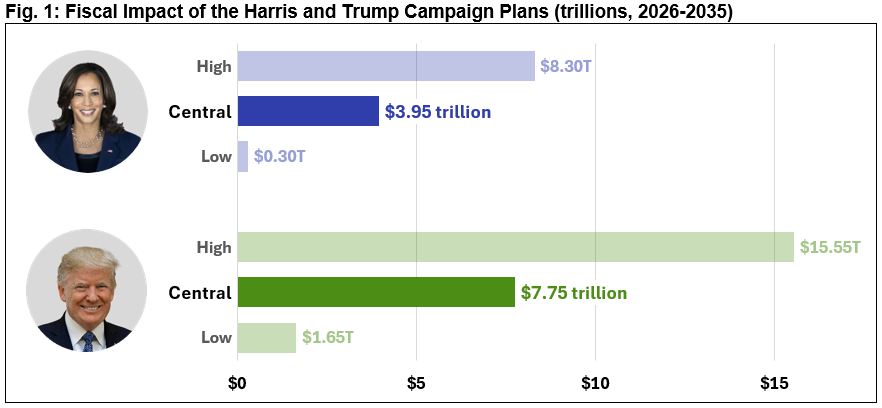The Fiscal Impact of the Harris and Trump Campaign Plans-Mon, 10/28/2024 - 12:00 | Committee for a Responsible Federal Budget
Note: This analysis has been updated to incorporate new proposals announced by the candidates since we initially published on October 7.| Committee for a Responsible Federal Budget




